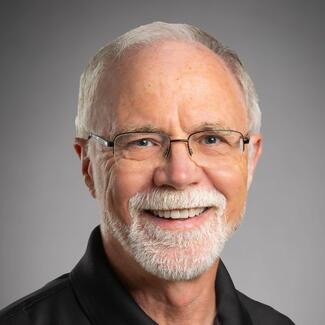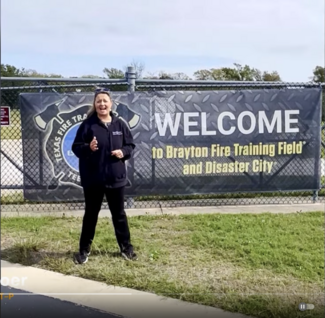Interview: Quick Response Saves Life at Marine Corps Marathon
It's not uncommon for first responders to save lives -- but how many can say they've done so while running a marathon in full turnout gear?
Jaimee Joroff can.
This year, at the running of the 31st Annual Marine Corps Marathon in Washington D.C., Joroff was part of a team of professionals who were at the right place, at the right time, to save a life.
Joroff, who is a firefighter/paramedic with the Prince George's County Fire/Emergency Medical Services Department, has a reputation for tackling big tasks. She participates in firefighter stair climbs all over the country - using the events to raise money for leukemia and lymphoma research.
"My grandfather died of leukemia," Joroff said. "It makes you realize how common these things are and appreciate your own good health."
She was running the Marine Corps Marathon for a cause, too. Joroff was competing to raise money for the International Association of Fire Fighters Burn Foundation, the largest non-governmental source of burn research in the nation.
Two days before the Oct. 28 event, a friend challenged her to run the entire race -- all 26.3 miles -- in full firefighter's gear. If she could complete the race her turnouts -- the friend would triple the amount of their donation.
But Joroff made a few changes to her wardrobe that day. She exchanged her firefighter's boots for running shoes and she emptied her pockets. But, "at the last minute," she says, "I thought 'you never know' and put my CPR mask in my pocket."
Buttenshaw, who works for the Fairfax County Va. Fire and Rescue Department, said that Joroff and her unusual running gear caught his eye. The two are both firefighter/paramedics in nearby precincts. They became fast friends and ran the first 10 miles together.
"It's always nice to run a marathon with someone," Buttenshaw said.
Not long after, the two saw fellow racer R.J. Turner abruptly collapse.
"He face planted," Joroff said. She and Buttenshaw rushed to Turner's aid. When they got to him, the 60-year-old was lying face down, in the midst of a seizure.
"We looked at each other like 'uh oh," Joroff said. She said she and Buttenshaw rolled Turner over and checked for a pulse - finding nothing. Turner was exhibiting signs of cardiac arrest.
Joroff says that CPR mask she pocketed as an afterthought helped save Turner. "The mask kept his tongue out of the way, and kept his airway open," Joroff explained.
Two more people joined Jaroff and Buttenshaw's efforts - a nurse and Director of Cardiac Surgery at George Washington Hospital Fred Lough. "Everybody seemed to be in the right place at the right time," Joroff said. She said Lough rode in the ambulance with Turner, directing the driver to the Washington D.C. hospital himself.
After seeing that Turner was on his way to the hospital, Joroff and Buttenshaw turned their attention back to the race. Joroff completed the run in five hours, 17 minutes and Buttenshaw's time was just a little less than that. Buttenshaw was also running to benefit the Burn Foundation and together, the two raised as much as $16,000.
Joroff and Buttenshaw met with Turner the following day. By then, doctors discovered that Turner's heart attack was brought on by a severely blocked artery. If Joroff and Buttenshaw hadn't been there to save him, he could have died on the race course. He was so thankful for Joroff and Buttenshaw's heroic efforts that that he offered to match the money the two raised.
"He realized he got a second shot at life," said Buttenshaw.
Another runner, Earl Seyford of Olney, Md., wasn't as lucky. He died after collapsing near the race's 17-mile mark. He was airlifted by helicopter to Washington Hospital Center. D.C. Police said that Seyford had a heart attack.
















